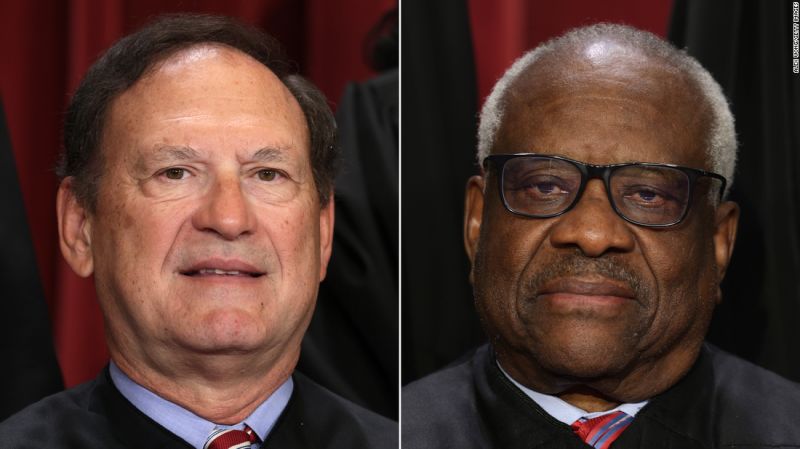Conservative justices on the Supreme Court brought attention to the Comstock Act, a long-dormant 19th-century law that prohibits the mailing of drugs used for abortions, during arguments in a major abortion pill case. Calls from within the anti-abortion movement to enforce the Comstock Act could potentially ban the mailing of abortion medication without requiring action from Congress or the Supreme Court. There is uncertainty and disagreement among anti-abortion advocates about how the law would be enforced, with some believing it could effectively ban medication abortion altogether.
Abortion rights supporters argue that their opponents are overstating the reach of the Comstock Act, while some justices on the Supreme Court appear to be considering a maximalist interpretation of the law’s reach. Justices Clarence Thomas and Samuel Alito’s interest in the law’s relevance to the case reflects the growing role of the Comstock Act in efforts to further limit abortion rights. The potential implications of the Comstock Act extend beyond just this case and could potentially impact abortion nationwide.
The Comstock Act, enacted in 1873, banned the use of the mail to transport various “lewd” materials, including abortion drugs. While not central to the current case against the FDA regarding mifepristone regulations, the Comstock Act was invoked by anti-abortion doctors and medical associations to argue that the FDA acted unlawfully. The Biden administration contends that the Comstock Act is not relevant to the current dispute over the drug’s regulations, arguing that the FDA’s focus should be on safety and efficacy concerns.
A potential reversal of the Justice Department’s position on the Comstock Act under a Republican administration could have far-reaching consequences for the provision of medication abortion nationwide. Some legal experts believe that an aggressive enforcement of the law could effectively end access to medication abortion and clinical abortion services. The Heritage Foundation has called for the enforcement of the law, but there is disagreement within the anti-abortion movement on how aggressively it should be wielded.
The political ramifications of the Supreme Court’s decision on the current FDA case and the potential enforcement of the Comstock Act are at the forefront of discussions within the anti-abortion movement and among political leaders. Former President Donald Trump’s campaign has not publicly weighed in on the issue, as there are differing opinions among leading anti-abortion groups on how to approach the legal battle. The Supreme Court’s ruling in the case and the future enforcement of the Comstock Act could have significant implications for abortion rights and access in the United States.


